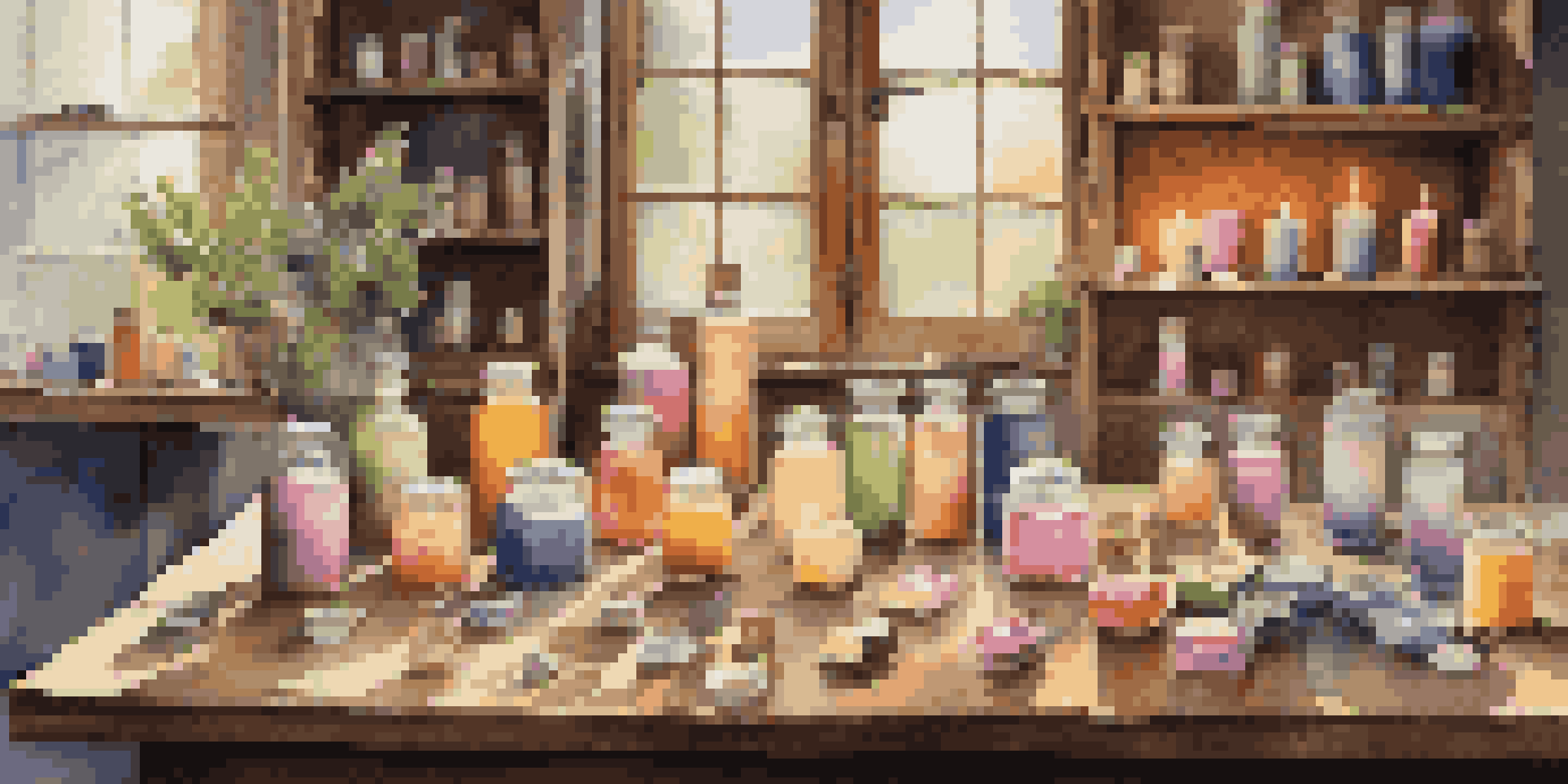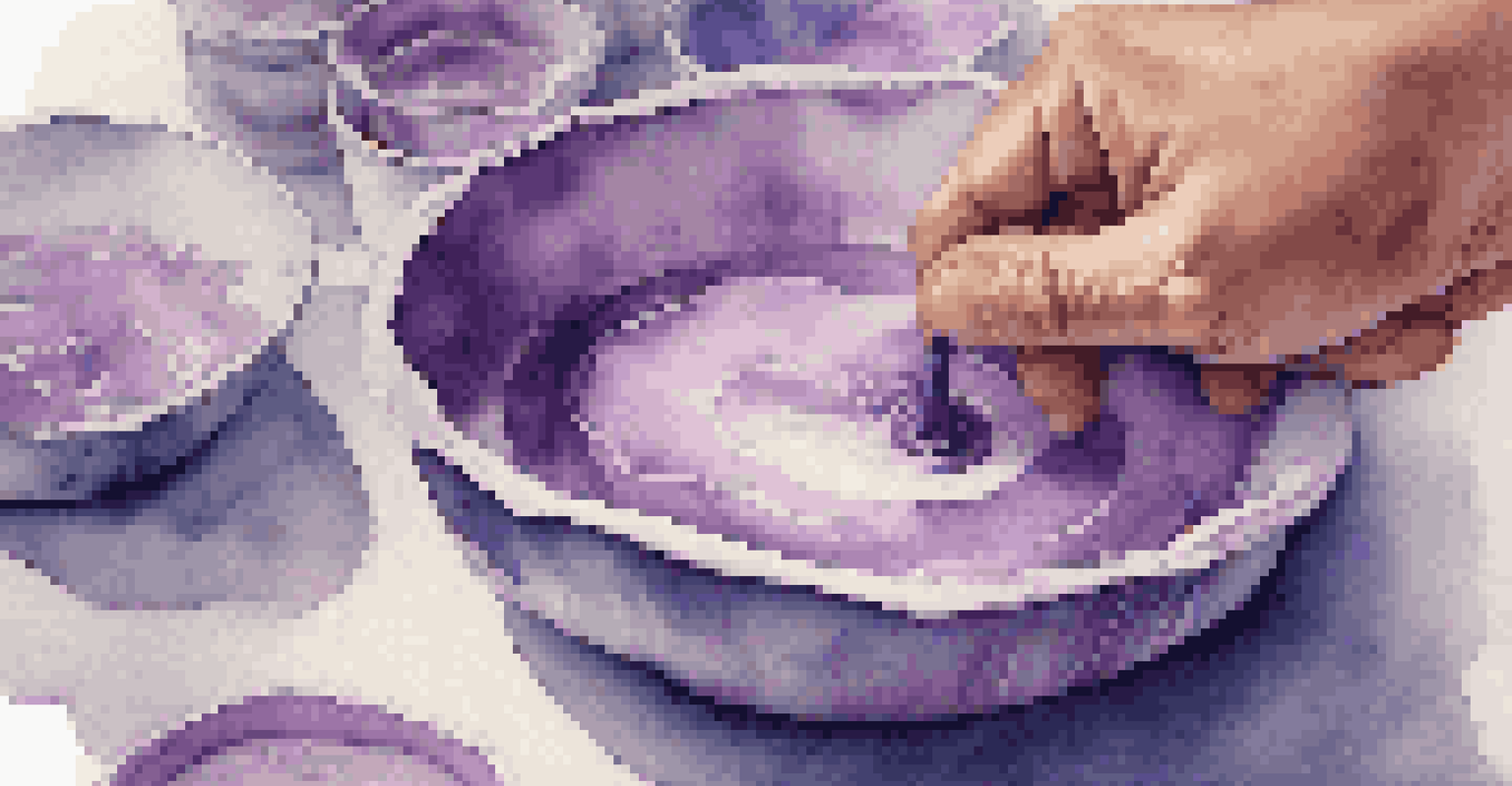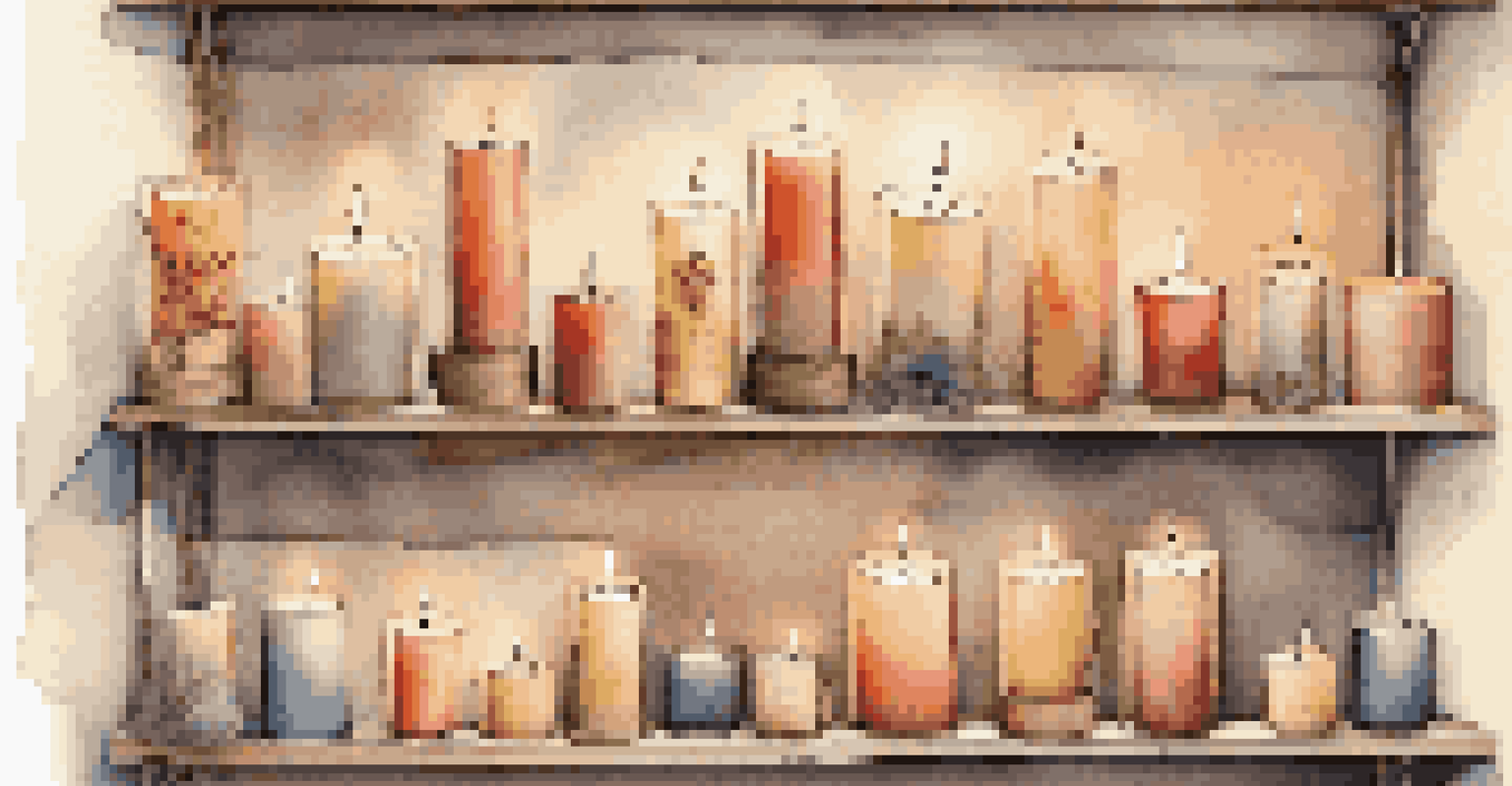Exploring Candle Making Classes: Finding the Right Fit

Understanding the Basics of Candle Making
Candle making is an art that combines creativity and craftsmanship. It involves melting wax, adding scents or colors, and pouring it into molds. Understanding the basics can help you decide which class suits your interests and skill level.
Creativity takes courage.
Whether you're drawn to traditional beeswax candles or modern soy options, knowing the different materials is key. Each type of wax has its own unique properties, affecting the burn time and scent throw. A class that covers these fundamentals will give you a solid foundation.
Additionally, candle making classes often explore various techniques like layering, molding, and decorative finishes. Gaining insight into these methods will enhance your overall experience and allow you to create truly personalized candles.
Identifying Your Goals for Taking a Class
Before signing up for a candle making class, it's essential to identify your goals. Are you looking to create candles as a hobby, or do you aim to start a small business? Having a clear intention can help you choose the right course.

If you’re just looking to unwind and express your creativity, a casual class might be perfect. However, if you're aiming to sell your creations, look for classes that focus on advanced techniques and business strategies. This clarity will guide your search effectively.
Identify Your Goals Before Class
Understanding whether you want to pursue candle making as a hobby or a business will help you select the most suitable class.
Consider what skills you want to acquire, such as scent blending or advanced pouring techniques. Tailoring your class selection to your objectives will enhance your learning experience and ensure you leave with the skills you desire.
Researching Local vs. Online Classes
When it comes to candle making classes, you have two main options: local in-person classes or online courses. Each has its own set of benefits and drawbacks. Local classes foster community and offer hands-on instruction, which can be incredibly valuable for beginners.
The only way to do great work is to love what you do.
On the other hand, online classes provide flexibility and the ability to learn at your own pace. You can revisit lessons as many times as you need, making it easier to master techniques. Think about your personal schedule and learning style when making your choice.
Ultimately, the decision may come down to availability and your comfort level. Some people thrive in a classroom setting, while others prefer the solitude of their own workspace. Both paths can lead to a fulfilling candle making experience.
Evaluating Class Content and Curriculum
Once you've narrowed down your options, take a closer look at the class content and curriculum. Is the class structured to cover all the essential techniques, or does it focus on specific areas? A well-rounded curriculum will help you develop a comprehensive understanding of candle making.
Look for classes that include discussions on safety, materials, and troubleshooting common issues. Understanding the science behind candle making can enhance your creativity and prevent frustrations as you learn.
Choose Between Local and Online
Deciding between in-person or online classes depends on your learning preferences and schedule flexibility.
Additionally, consider whether the class offers hands-on projects. Practical experience is invaluable and will help reinforce what you learn. A good class should provide a mix of theory and practical application to cater to different learning styles.
Considering Class Size and Instructor Experience
The size of the class can greatly impact your learning experience. Smaller classes often allow for more one-on-one interaction with the instructor, which can be beneficial when mastering techniques. You’ll have more opportunities to ask questions and receive personalized feedback.
On the other hand, larger classes may offer a wider variety of perspectives and experiences. These classes often foster a sense of community as participants share their ideas and creations. Think about which environment would make you feel more comfortable and engaged.
Additionally, take the time to research the instructor’s background. An experienced instructor can provide valuable insights and tips that only come from years of practice. Their expertise can significantly enhance your learning journey.
Checking Reviews and Testimonials
Before enrolling in a candle making class, it's wise to check reviews and testimonials from past students. This feedback can offer you a glimpse into the class atmosphere and the quality of instruction. Look for consistent positive remarks about the content and instructor.
Social media and community forums can be great resources for finding authentic reviews. They often highlight not only the positives but also any potential drawbacks you should be aware of. This information can help you make a more informed decision.
Evaluate Class Quality and Costs
Investigating class content, instructor experience, and associated costs will ensure you choose a valuable learning experience.
Don’t hesitate to reach out to former students for their insights. They can provide personal anecdotes that might resonate with your own learning preferences. This step can be instrumental in ensuring you choose the right class for your needs.
Budgeting for Your Candle Making Class
When exploring candle making classes, budgeting is an important consideration. Classes can vary widely in price, depending on factors like location, duration, and materials provided. Knowing how much you're willing to spend can help you narrow down your options.
Keep in mind that some classes may require you to purchase additional materials separately. Be sure to factor in these costs when evaluating your budget. Sometimes, investing a bit more upfront can lead to a better overall experience.

Additionally, look for workshops or packages that offer discounts for multiple sessions. This can save you money in the long run while allowing you to deepen your skills over time. A well-planned budget will enhance your enjoyment and commitment to learning.